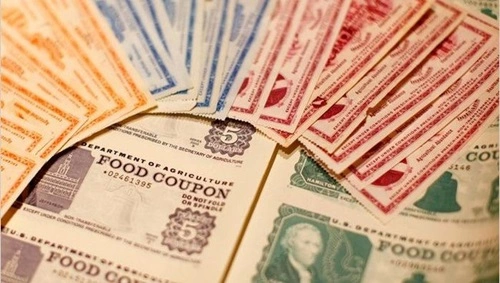Yes, it is illegal to buy food stamps in the United States. Food stamps, now provided through the Supplemental Nutrition Assistance Program (SNAP), are federally funded benefits designed to help low-income households purchase food. The program strictly prohibits the sale, purchase, or exchange of SNAP benefits for cash or non-eligible goods, and engaging in such activities can result in severe legal consequences.
Understanding SNAP and Its Regulations
1. What Are Food Stamps?
- Food stamps were traditionally paper coupons issued under SNAP to eligible recipients for food purchases. Today, benefits are distributed electronically via an Electronic Benefits Transfer (EBT) card, which works like a debit card at authorized retailers.
- SNAP benefits can only be used to purchase eligible food items, such as fruits, vegetables, dairy, and meat, and cannot be exchanged for cash or non-food items.
2. Legality of Buying or Selling SNAP Benefits
- The Food and Nutrition Act of 2008, which governs SNAP, explicitly prohibits the transfer or sale of benefits.
- Both buying and selling food stamps, whether in their former paper form or as EBT transactions, are considered fraud under federal law.
Legal Penalties for Buying Food Stamps
1. Criminal Charges
- Buying food stamps is considered SNAP trafficking and can lead to felony or misdemeanor charges depending on the amount involved.
- Federal penalties for food stamp trafficking include:
- Fines of up to $250,000.
- Imprisonment for up to 20 years for large-scale fraud.
2. Repayment of Benefits
- Individuals caught engaging in food stamp fraud may be required to repay the equivalent value of the illegally purchased benefits.
3. Disqualification from SNAP
- If a SNAP recipient sells benefits, they may be permanently disqualified from the program.
4. State-Level Penalties
- In addition to federal penalties, states have their own laws against food stamp trafficking, which may include additional fines or prison sentences.
Why Buying Food Stamps Is Illegal
1. Program Integrity
- SNAP is designed to assist low-income families in purchasing essential food. Trafficking undermines the program’s purpose and redirects funds away from those in need.
2. Taxpayer Burden
- SNAP benefits are funded by taxpayer dollars, and fraud in the system increases costs for the government and taxpayers.
3. Consumer Protection
- Individuals buying food stamps often pay less than the actual value of the benefits, exploiting vulnerable populations who may sell their benefits out of desperation.
How SNAP Prevents and Detects Fraud
1. Electronic Monitoring
- EBT transactions are monitored to detect suspicious patterns, such as repeated attempts to purchase non-eligible items or unusual spending habits.
2. Sting Operations
- Law enforcement agencies conduct undercover operations to catch individuals and businesses engaging in SNAP trafficking.
3. Retailer Audits
- Authorized retailers are regularly audited to ensure compliance with SNAP rules. Those found engaging in fraudulent activities may lose their authorization and face prosecution.
Alternatives to Buying Food Stamps
1. Community Resources
- Instead of resorting to illegal activities, individuals facing food insecurity can seek assistance from food banks, community pantries, and other charitable organizations.
2. SNAP Eligibility
- Low-income individuals can apply for SNAP benefits through their state’s social services department if they meet the eligibility criteria.
Related FAQs
Q1. Can I use someone else’s EBT card with their permission?
Ans: No, using another person’s EBT card is considered fraud, even with their consent. Only the designated recipient is authorized to use the benefits.
Q2. What happens if I’m caught buying food stamps?
Ans: Buying food stamps can lead to criminal charges, fines, and imprisonment, as well as being permanently barred from SNAP eligibility if you are a recipient.
Q3. Can I buy non-food items with SNAP benefits?
Ans: No, SNAP benefits are strictly limited to eligible food items and cannot be used to purchase non-food items like alcohol, cigarettes, or household supplies.
Q4. Are businesses punished for trafficking food stamps?
Ans: Yes, businesses that engage in SNAP trafficking may lose their authorization to accept EBT and face criminal penalties, including fines and imprisonment.
Q5. How do I report food stamp fraud?
Ans: Food stamp fraud can be reported to the U.S. Department of Agriculture (USDA) Office of Inspector General or through state SNAP fraud hotlines.
Conclusion
Purchasing food stamps is illegal under federal law and carries significant legal penalties, including fines and imprisonment. The SNAP program is designed to assist low-income individuals with food purchases, and trafficking undermines this purpose. If you or someone you know needs assistance, consider legal resources such as food banks or applying for SNAP benefits instead of engaging in illegal activities.

